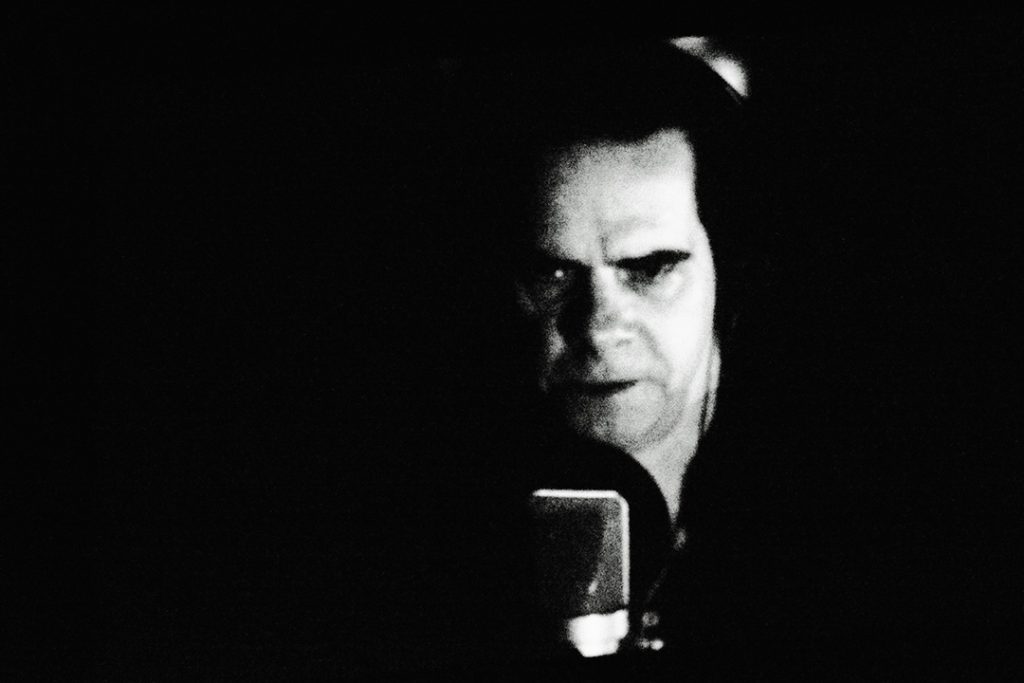
I saw Nick Cave’s new film “One More Time with Feeling” the other night. It documents the making of Skeleton Tree, his new record, and delves into his feelings about the tragic death of his son Arthur.
Going in, I figured it would be a gut-wrenching experience, and there are a few of those moments, but it has it’s lighter moments as well. I was surprised to find myself laughing out loud a few minutes into the opening scene when the camera malfunctioned as Warren Ellis was giving an emotional speech, and then the soundtrack continued with Ellis bitching about the documentary. Many of those lighter moments are associated with the film’s meta critique of the documentary filmmaking process. Overall, the film was much more about the creative process than about Cave’s grief.
So as a viewer, just like the participants, I found myself critiquing the filmmaker, and the manufactured elements of the film as a documentary, such as performing interviews in the back of a car while driving around; or, as the title of the film alludes to, the overall artificiality of placing people in fake scenes and manipulating how they communicate to the camera.
Otherwise, the film consists of interviews with Cave, Warren Ellis and Cave’s wife Suzie about the making of Skeleton Tree, Cave’s creative process in general, and their emotional states concerning Arthur’s passing. Cave narrates a closely-written voiceover throughout much of the film that gives it an overall coherence.
The film was shot in black and white, except for one incredible color sequence that made me wish the whole thing was shot in color. And my understanding is that it was shot with a 3D camera, as well, but apparently the theater I saw it in didn’t do 3D. Anyway, much of the cinematography was excellent.
Warren Ellis’s work is almost as much a part of Nick Cave’s music as Cave is himself. In the film, you see Ellis creating the soundscapes, directing the other musicians, and genuinely collaborating with Cave on how the songs are constructed.
Whether you would want to see it probably depends on how much you like Nick Cave; or possibly if you are interested in the grieving process and how one very creative couple and group of friends are handling it. Skeleton Tree is not one of Cave’s more accessible records. There are no rockers or guitar solos. Few of the songs have any kind of traditional narrative or even refrains. It sounds more like one of Cave/Ellis’s soundtracks than a Bad Seeds record. The songs are built on elegiacal notes that alternate their resonance. More of a A few of the songs contain not-too-distant-echoes of material from Push the Sky Away. “Jesus Alone” is the closest thing to a regular song on the record, and it’s not very close.
I like it a lot, but I think Cave is one of the great artists of your time, so I am inclined to give it the time and consideration it deserves. To experience either the movie or the record requires slowing down. Slowing way down.
Leave a Reply